第45章 IV(1)
The early discords had passed away completely--resolved into the absolute harmony of married life. Victoria, overcome by a new, an unimagined revelation, had surrendered her whole soul to her husband. The beauty and the charm which so suddenly had made her his at first were, she now saw, no more than but the outward manifestation of the true Albert. There was an inward beauty, an inward glory which, blind that she was, she had then but dimly apprehended, but of which now she was aware in every fibre of her being--he was good--he was great! How could she ever have dreamt of setting up her will against his wisdom, her ignorance against his knowledge, her fancies against his perfect taste? Had she really once loved London and late hours and dissipation? She who now was only happy in the country, she who jumped out of bed every morning--oh, so early!--with Albert, to take a walk, before breakfast, with Albert alone! How wonderful it was to be taught by him! To be told by him which trees were which; and to learn all about the bees! And then to sit doing cross-stitch while he read aloud to her Hallam's Constitutional History of England! Or to listen to him playing on his new organ "The organ is the first of instruments," he said); or to sing to him a song by Mendelssohn, with a great deal of care over the time and the breathing, and only a very occasional false note! And, after dinner, to--oh, how good of him! He had given up his double chess! And so there could be round games at the round table, or everyone could spend the evening in the most amusing way imaginable--spinning counters and rings.' When the babies came it was still more wonderful. Pussy was such a clever little girl ("I am not Pussy! I am the Princess Royal!" she had angrily exclaimed on one occasion); and Bertie--well, she could only pray MOST fervently that the little Prince of Wales would grow up to "resemble his angelic dearest Father in EVERY, EVERY respect, both in body and mind." Her dear Mamma, too, had been drawn once more into the family circle, for Albert had brought about a reconciliation, and the departure of Lehzen had helped to obliterate the past. In Victoria's eyes, life had become an idyll, and, if the essential elements of an idyll are happiness, love and simplicity, an idyll it was; though, indeed, it was of a kind that might have disconcerted Theocritus. "Albert brought in dearest little Pussy," wrote Her Majesty in her journal, "in such a smart white merino dress trimmed with blue, which Mamma had given her, and a pretty cap, and placed her on my bed, seating himself next to her, and she was very dear and good. And, as my precious, invaluable Albert sat there, and our little Love between us, I felt quite moved with happiness and gratitude to God."
The past--the past of only three years since--when she looked back upon it, seemed a thing so remote and alien that she could explain it to herself in no other way than as some kind of delusion--an unfortunate mistake. Turning over an old volume of her diary, she came upon this sentence--"As for 'the confidence of the Crown,' God knows! No MINISTER, NO FRIEND, EVER possessed it so entirely as this truly excellent Lord Melbourne possesses mine!" A pang shot through her--she seized a pen, and wrote upon the margin--"Reading this again, I cannot forbear remarking what an artificial sort of happiness MINE was THEN, and what a blessing it is I have now in my beloved Husband REAL and solid happiness, which no Politics, no worldly reverses CAN change; it could not have lasted long as it was then, for after all, kind and excellent as Lord M. is, and kind as he was to me, it was but in Society that I had amusement, and I was only living on that superficial resource, which I THEN FANCIED was happiness! Thank God! for ME and others, this is changed, and I KNOW WHAT REAL HAPPINESS IS--V. R." How did she know? What is the distinction between happiness that is real and happiness that is felt? So a philosopher--Lord M. himself perhaps--might have inquired. But she was no philosopher, and Lord M. was a phantom, and Albert was beside her, and that was enough.
Happy, certainly, she was; and she wanted everyone to know it. Her letters to King Leopold are sprinkled thick with raptures. "Oh! my dearest uncle, I am sure if you knew HOW happy, how blessed I feel, and how PROUD I feel in possessing SUCH a perfect being as my husband..." such ecstasies seemed to gush from her pen unceasingly and almost of their own accord. When, one day, without thinking, Lady Lyttelton described someone to her as being "as happy as a queen," and then grew a little confused, "Don't correct yourself, Lady Lyttelton," said Her Majesty. "A queen IS a very happy woman."